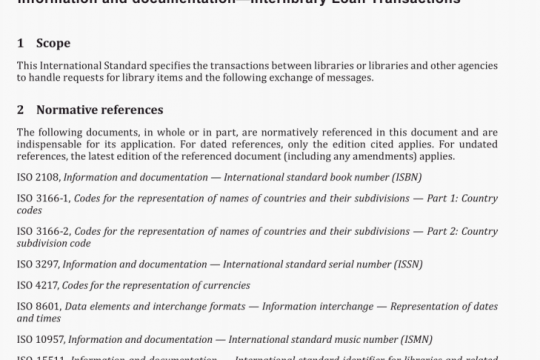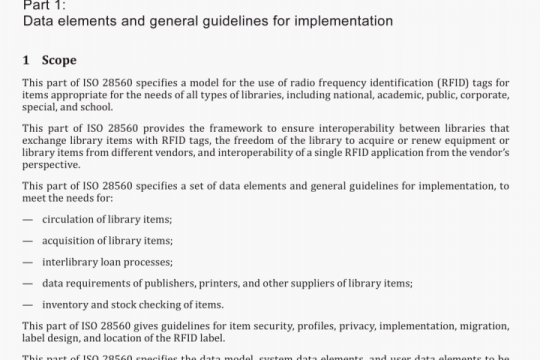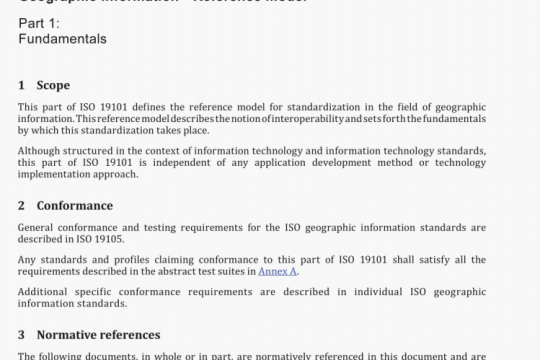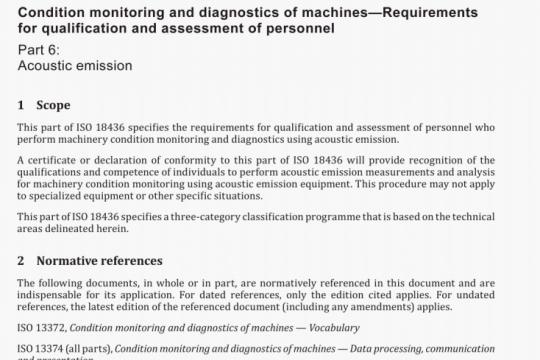BS ISO 17369:2013 pdf free
BS ISO 17369:2013 pdf free.Statistical data and metadata exchange (SDMX)
The SDMX standards are designed to support any of the three exchange patterns mentioned. It is possible to use SDMX-EDI or SDMX-ML as a metadata-rich exchange format for bilateral reporting or gateway exchange; it is also possible to use the SDMX formats, web services guidelines and registry specification to fully support a data-sharing pattern. The design of SDMX is such that not all of the offered features need to be used: SDMX standards span the breadth between the use of the standard to provide a simple data and metadata format, through to a fully automated and standardized exchange of data in a data-sharing mode.
The standards specified here specifically support a data-sharing process pattern based on the use of central registry services. Registry services provide visibility into the data and metadata existing within the community, and support the access and use of this data and metadata by providing a set of triggers for automated data and metadata retrieval. The data or metadata itself is not stored in a central registry: these services merely provide a useful set of metadata about the data (and additional metadata) in a known location, so that users/ applications can easily locate and obtain whatever data and/or metadata are registered. The use of standards for all data, metadata and the registry services themselves is ubiquitous, permitting a high level of automation within a data-sharing community.
These three process patterns are not mutually exclusive: a single system capable of expressing data and metadata in SDMX-conformant formats could support all three patterns.
In addition to looking at collection and reporting, it is also important to consider the dissemination of data. Data and metadata (no matter how they are exchanged between counterparties in the process of their development and creation) are all eventually supplied to an end user of some type. Often, this is through specific applications inside of institutions. However, more and more frequently, data and metadata are also published on websites in various formats. The dissemination of data and its accompanying metadata on the web is a focus of the SDMX standards. Standards for statistical data and metadata allow improvements in the publication of data: a standard format facilitates the linking of data to metadata, making the data more comprehensible to the end user and making further processing of the data easier.
In discussions of statistical data, there are many aspects of its dissemination which impact data quality: data discovery, ease of use and timeliness. SDMX standards provide support for all of these aspects of data dissemination. Standard data formats promote ease of use and provide links to relevant metadata.
The concept of registry services means that data and metadata can more easily be discovered. Timeliness is improved throughout the data lifecycle by increases in efficiency, promoted through the availbility of metadata and ease of use.BS ISO 17369 pdf download.




